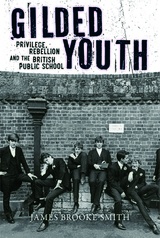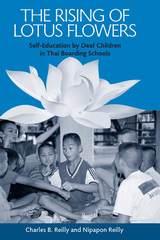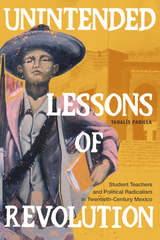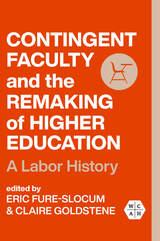
For two years, Rubén Gaztambide-Fernández shared the life of what he calls the “Weston School,” an elite New England boarding school. He sat in on classes, ate meals in the dining halls, cheered at sporting events, hung out in dorms while students baked cookies or celebrated birthdays. And through it all, observing the experiences of a diverse group of students, conducting interviews and focus groups, he developed a nuanced portrait of how these students make sense of their extraordinary good fortune in attending the school.
Vividly describing the pastoral landscape and graceful buildings, the rich variety of classes and activities, and the official and unofficial rules that define the school, The Best of the Best reveals a small world of deeply ambitious, intensely pressured students. Some are on scholarship, others have never met a public school student, but all feel they have earned their place as a “Westonian” by being smart and working hard. Weston is a family, they declare, with a niche for everyone, but the hierarchy of coolness—the way in which class, race, sexism, and good looks can determine one’s place—is well known.
For Gaztambide-Fernández, Weston is daunting yet strikingly bucolic, inspiring but frustratingly incurious, and sometimes—especially for young women—a gilded cage for a gilded age. “Would you send your daughter here?” one girl asks him, and seeing his hesitation asks, “Because you love her?”

Drawing on personal experience, extensive research, and public school representations in poetry, school slang, spy films, popular novels, and rock music, Brooke-Smith offers a fresh account of upper-class adolescence in Britain and the role of elite private education in shaping youth culture. He shows how this central British institution has inspired a counterculture of artists, intellectuals, and radicals—from Percy Shelley and George Orwell to Peter Gabriel and Richard Branson—who have rebelled against both the schools themselves and the wider society for which they stand. Written with verve and humor in the tradition of Owen Jones’s The Establishment: And How They Get Away With It, this highly original cultural history is an eye-opening leap over the hallowed iron gates of privilege—and perturbation.

In developed nations around the world, residential schools for deaf students are giving way to the trend of inclusion in regular classrooms. Nonetheless, deaf education continues to lag as the students struggle to communicate. In the Bua School in Thailand, however, 400 residential deaf students ranging in age from 6 to 19 have met with great success in teaching each other Thai Sign Language (TSL) and a world of knowledge once thought to be lost to them. The Rising of Lotus Flowers: Self-Education by Deaf Children in Thai Boarding Schools reveals how their institutionalization allowed them to foster a unique incubator of communication and education.
Charles B. Reilly, a teacher and community organizer in Thailand for eight years, and Nipapon Reilly, a Deaf Thai citizen, studied the students in the Bua School for 14 years, with periodic follow-ups thereafter. They found that the students learned little from their formal instructors, but that they were able to educate each other in time spent away from the classroom. Older students who had learned TSL in the dorms and on the playground successfully passed it on to six-year-olds who had virtually no language at all. The Reillys’ study uncovers an elaborate hierarchy of education among these students, with each group using games and other activities to teach and bring other classmates up to their level. Named for the much admired aquatic plant that blooms in Thailand’s bogs, the Bua School epitomizes the ideal of The Rising of Lotus Flowers, which also offers analytical evidence of the continuing value of residential schools in deaf education.

READERS
Browse our collection.
PUBLISHERS
See BiblioVault's publisher services.
STUDENT SERVICES
Files for college accessibility offices.
UChicago Accessibility Resources
home | accessibility | search | about | contact us
BiblioVault ® 2001 - 2024
The University of Chicago Press









